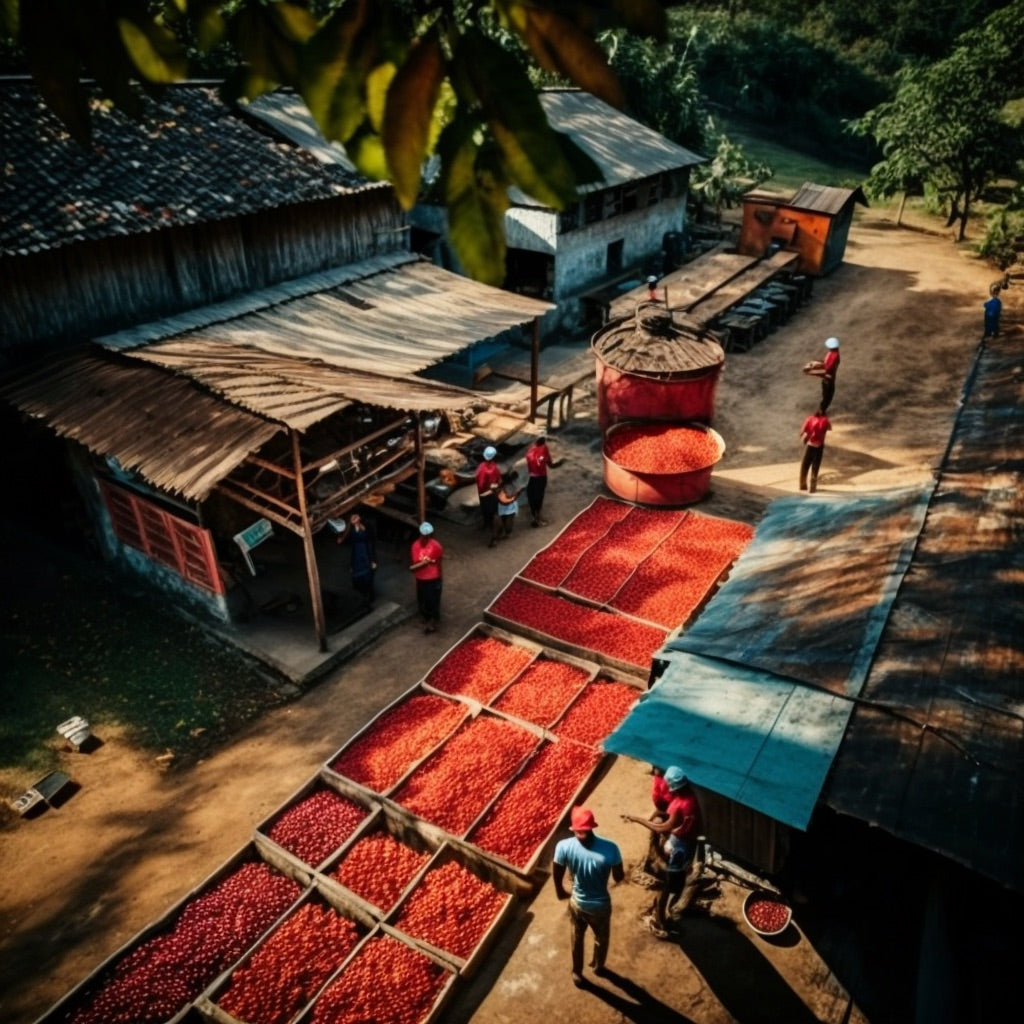Papua New Guinea - Mt. Hagen, Garoka Region
Papua New Guinea - Mt. Hagen, Garoka Region
Couldn't load pickup availability
TASTING NOTES: Syrup, Chocolate, Cedar
GENERAL NOTES: Smooth, Sweet, Medium Body and Acidity Level, Clean Finish
GROWING REGION: Garoka
PROCESS: Washed
ALTITUDE: 1400-2000 Meters Above Sea Level (MASL)
AWARDS: SCA Coffee of the Year
CERTIFICATION: Rainforest Alliance, Fair Trade USA
Much of Papua New Guinea's coffee is grown in the mountain highlands including the central highlands of Mt. Hagen, at altitudes ranging from 1,400 to 2,000 MASL, and in an area rich in volcanic soils.
At this extreme elevation, coffee cherries mature more slowly and develop brighter, more acidic cup qualities. Because of the cooler temperatures, coffees natural sugars don’t break down as quickly, so they grow more pronounced and create a more distinct cup with medium acidity and body, mild fruit flavors, and a chocolate-covered nut finish.
Although Papua New Guinea coffee is an Indo-Pacific coffee, it separates itself from the others in nearly every way. The most distinct difference is that the coffee from Papua New Guinea is wet processed and not wet hulled like other coffees from similar regional varieties. The difference in processing creates a cup with a very different flavor and body, a developed sweetness is prominent and earthy.
In recent years, Papua New Guinea coffee has been awarded the Specialty Coffee Association's (SCA) Coffee of the Year Award and has also been certified by the Rainforest Alliance and Fair Trade USA. The Rainforest Alliance certification indicates that the coffee was grown in a way that is environmentally and socially sustainable, while the Fair Trade certification indicates that the farmers were paid a fair price for their coffee.
The highlands of Papua New Guinea are also known for their traditional smallholder farming methods, where coffee is often grown alongside other crops such as vegetables and fruit trees. This sustainable approach to farming helps preserve the environment and supports local communities.
Share












